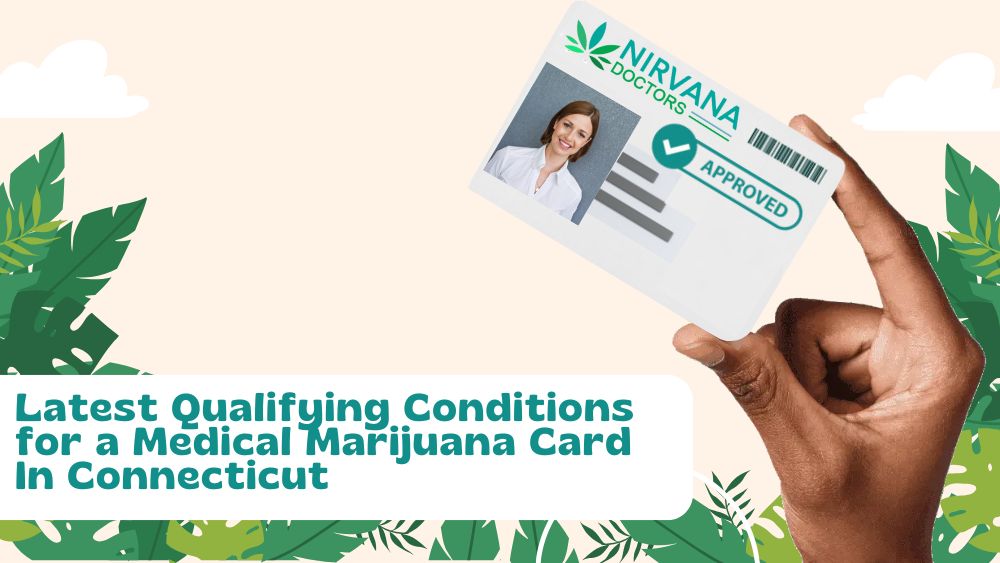 Medical marijuana continues to be a vital alternative treatment for patients with chronic and debilitating conditions. Connecticut’s medical marijuana program has seen significant updates in 2025, including new qualifying conditions and streamlined processes for obtaining a medical marijuana card. In this article, we’ll cover the latest qualifying conditions, how to apply, and recent legislative changes you need to know.
Medical marijuana continues to be a vital alternative treatment for patients with chronic and debilitating conditions. Connecticut’s medical marijuana program has seen significant updates in 2025, including new qualifying conditions and streamlined processes for obtaining a medical marijuana card. In this article, we’ll cover the latest qualifying conditions, how to apply, and recent legislative changes you need to know.
Overview of Connecticut’s Medical Marijuana Program
Connecticut first legalized medical marijuana in 2012, providing patients suffering from specific medical conditions access to cannabis for therapeutic purposes. The program, overseen by the Connecticut Department of Consumer Protection (DCP), is designed to ensure that medical marijuana is used safely and effectively, offering relief to those with serious health conditions.
Patients looking to obtain a medical marijuana card must meet strict eligibility criteria, including proof of Connecticut residency and a certification from a licensed healthcare provider. As of 2025, the program has been updated to include additional qualifying conditions, making it more inclusive for patients in need.
Updated List of Qualifying Conditions (2025)
The following is the most up-to-date list of qualifying conditions for a medical marijuana card in Connecticut as of 2025. This includes both previously recognized and newly added conditions, reflecting the evolving understanding of medical marijuana’s benefits:
Common Qualifying Conditions:
- Cancer
- Chronic Pain (associated with a qualifying condition)
- Glaucoma
- HIV/AIDS
- Parkinson’s Disease
- Multiple Sclerosis (MS)
- Post-Traumatic Stress Disorder (PTSD)
- Epilepsy/Seizure Disorders
- Crohn’s Disease
Newly Added Conditions for 2025:
- Chronic Migraine
- Autism Spectrum Disorder (for patients over 18)
- Irritable Bowel Syndrome (IBS)
- Severe Anxiety Disorders
- Opioid Use Disorder (non-responsive to standard treatments)
These additions reflect a growing recognition of the potential for medical marijuana to address chronic conditions that may not respond well to traditional treatments.
How to Apply for a Medical Marijuana Card in Connecticut (2025)
Applying for a medical marijuana card in Connecticut is a multi-step process. The Connecticut Department of Consumer Protection has streamlined this process for 2025, making it more accessible and straightforward for patients.
Step 1: Consult with a Licensed Healthcare Provider
The first step in obtaining a medical marijuana card is to consult with a licensed healthcare provider. The provider must be registered with the Connecticut Department of Consumer Protection and must certify that you have one of the qualifying conditions.
Step 2: Obtain a Medical Certification
If your healthcare provider determines that you qualify for medical marijuana, they will submit a certification to the Connecticut Medical Marijuana Program. This certification must include your diagnosis and a recommendation for medical cannabis as a treatment option.
Step 3: Complete the Online Application
Once your certification has been submitted, you can begin the online application process through the DCP’s website. You will need to provide:
- Proof of Connecticut residency (e.g., driver’s license or state-issued ID)
- A recent photograph
- An application fee (which has been updated for 2025, typically around $100)
Step 4: Receive Your Medical Marijuana Card
Once your application is approved, you will receive your medical marijuana card in the mail. With this card, you can legally purchase medical cannabis from any licensed dispensary in Connecticut.
Recent Legislative Changes in Connecticut (2025)
Connecticut has made several legislative updates to its medical marijuana program in 2025. These changes are focused on expanding access and improving the overall process:
- Expanded Qualifying Conditions: As mentioned earlier, new conditions such as autism spectrum disorder and chronic migraine have been added to the list of qualifying conditions.
- Telemedicine Renewals: Patients can now renew their medical marijuana cards via telemedicine, allowing for greater convenience, especially for those with mobility issues or living in rural areas.
- Increased Possession Limits: The amount of medical marijuana that patients can possess has been increased, allowing for more flexibility in managing chronic conditions.
- Insurance Coverage: While still limited, there are ongoing discussions regarding potential insurance coverage for medical marijuana, a significant development that could occur later in 2025.
The Importance of Consulting with a Licensed Healthcare Provider
It’s crucial to work closely with a licensed healthcare provider when considering medical marijuana as a treatment option. These professionals can provide expert guidance on dosage, strains, and potential interactions with other medications. They will also ensure that you meet all the necessary legal requirements for the Connecticut medical marijuana program.
For those interested in exploring medical marijuana, it’s important to remember that cannabis affects individuals differently. A healthcare provider can help monitor your progress and adjust your treatment as necessary, ensuring you receive the maximum benefit from medical cannabis while minimizing potential risks.
Conclusion
The Connecticut medical marijuana program continues to evolve, with new qualifying conditions and legislative changes making it easier for patients to access medical cannabis in 2025. If you believe you may qualify for a medical marijuana card, follow the application steps outlined above, and consult with a licensed healthcare provider to ensure this treatment is right for you.
For more information and the latest updates, always refer to the Connecticut Department of Consumer Protection (DCP) website or consult your healthcare provider.